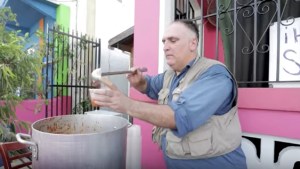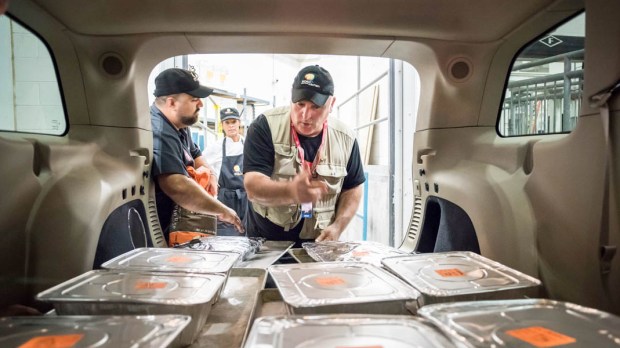Last year, in the wake of Hurricane Maria, José Andrés took his non-profit group to Puerto Rico where they provided food to people in their most desperate hour. Their efforts were captured in a book, We Fed an Island: The True Story of Rebuilding Puerto Rico, One Meal at a Time,which he co-authored with newsman Richard Wolffe. Now in recognition of his humanitarian efforts, he has been nominated for the 2019 Nobel Peace Prize.
The Washington Post reports Rep. John Delaney (D-Md.), who submitted the nomination, wrote:
“Because of Mr. Andrés’s work, millions of people have been fed. This is the most basic human need and Mr. Andrés has proven to be world-class in this essential humanitarian field. With an incredible spirit and an innovative mind, Mr. Andrés is solving one of the world’s ancient problems and supplying world leaders with a new road map to provide more effective disaster relief in the future.”
In 2010, Andrés started the World Central Kitchen in response to the earthquake that devastated Haiti. Since then, he has visited similar disaster areas in Puerto Rico, Florida, North Carolina, and Guatemala, where his crew works diligently to serve anyone who is in need.

Read more:
Chef José Andrés is now serving over 100,000 meals a day in Puerto Rico
This Thanksgiving, Andrés gave up his time with family and friends to travel to California, where he served Thanksgiving dinner to the survivors of the Camp Fire. Alongside fellow chefs Tyler Florence and Guy Fieri, he dished out more than 15,000 hot meals.
On his Twitter feed, which serves as a real-time journal of his humanitarian efforts, he wrote:
“The least we can be doing today on Thanksgiving is all coming together and show the people what they deserve: love and support, one plate of food at a time.”
Andrés’ work with World Central Kitchen has given him a unique view of the needs and processes of disaster relief agencies. He believes that there is a need for non-profit organizations to re-evaluate their current methods. In the book he suggests relief groups should rely more on local resources and less on leadership:
“What we did was embrace complexity every single second,” Andrés wrote in his book. “Not planning, not meeting, just improvising. The old school wants you to plan, but we needed to feed the people.”
The announcement of this nomination is unusual, in that the five-member Norwegian Nobel Committee discourages such displays. The group does not usually even tell those who were nominated that they are up for consideration. Even after the prize has been awarded, they do not reveal any further information about the winners for another 50 years.
When the Washington Post contacted him for comment on the nomination, Andrés reaction was humble and a bit detached:
“Oh, wow,” he said, after a long pause. “They nominate everybody.” He then added, “In the end you see that food every day is having a bigger impact.”

